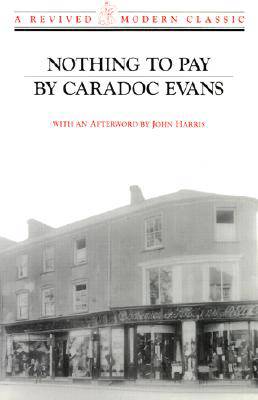
- Afhalen na 1 uur in een winkel met voorraad
- Gratis thuislevering in België vanaf € 30
- Ruim aanbod met 7 miljoen producten
- Afhalen na 1 uur in een winkel met voorraad
- Gratis thuislevering in België vanaf € 30
- Ruim aanbod met 7 miljoen producten
Zoeken
€ 12,95
+ 25 punten
Omschrijving
When Caradoc Evans's novel Nothing to Pay appeared in 1930, it met with much admiration and also much resistance. His ruthless exposure of the Nonconformist establishment undermined the commonly held view that the Welsh were a pastoral, God-fearing people. As Jeremy Brooks put it The Independent, "What the Welsh could not forgive was that they recognized themselves only too clearly in Evans's satirical portraits." But Dylan Thomas praised Evans's work relentlessly, and H.G. Wells said in a lecture: "There was one, who is too little esteemed, who has done the thing [of telling about the trade shops] with a certain brutal thoroughness, and he tells a great deal of truth. That is Caradoc Evans in his book Nothing to Pay." (In America, H.L. Mencken saw in Evans the fundamentalists of the South laid bare, and offered one hundred free copies of his story collection to the local YMCA.) Nothing to Pay relates the story of Amos Morgan, an ambitious draper from Cardiganshire who works his way up to London through the shop trade. Largely autobiographical, this novel was admired by the Welsh literati and has since become a classic of Welsh literature, not only for its scathing satire, but for its brilliant linguistic inventiveness and poetic style.
Specificaties
Betrokkenen
- Auteur(s):
- Uitgeverij:
Inhoud
- Aantal bladzijden:
- 237
- Taal:
- Engels
- Reeks:
- Reeksnummer:
- nr. 800
Eigenschappen
- Productcode (EAN):
- 9780811212908
- Verschijningsdatum:
- 17/06/1995
- Uitvoering:
- Paperback
- Formaat:
- Trade paperback (VS)
- Afmetingen:
- 133 mm x 201 mm
- Gewicht:
- 258 g

Alleen bij Standaard Boekhandel
+ 25 punten op je klantenkaart van Standaard Boekhandel
Beoordelingen
We publiceren alleen reviews die voldoen aan de voorwaarden voor reviews. Bekijk onze voorwaarden voor reviews.











